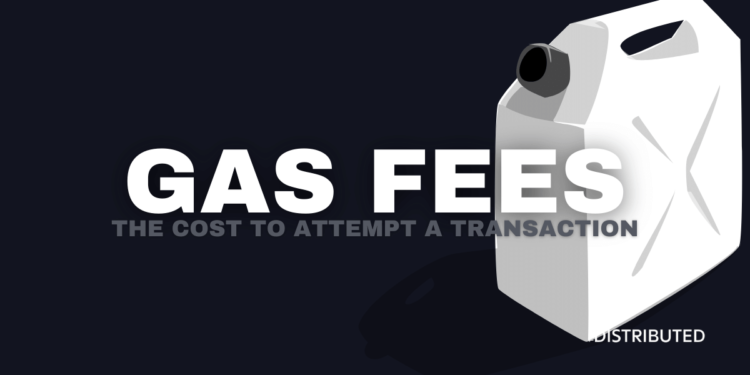What Are Gas Fees?
Gas fees are the cost that is required to attempt a transaction. This is decided based on the computational energy needed to confirm a transaction.
These transactions take time, energy, and computational effort, which doesn’t come for free. The fees are decided upon the supply and demand of the blockchain at the time of the transaction, through the blockchain’s protocol. Gas pays the miners for the energy spent validating the transactions, while also preventing spam and infinite loops.
Gas fees are required for almost every action that takes part on a blockchain, the more complex the action, the higher the associated fee.
How Do Gas Fees Work?
The Ethereum network can only compute 13 transactions per second, because of this miners pace the stream of requests coming through and choose the transactions that’ll give them the best returns. Portions of Ether called Gwei are linked to each transaction, called the “Gas Price”. It is like a bribe that pushes you to the front of the transactions waiting to be confirmed. The higher the bribe, the faster your transaction is confirmed.
Your “Gas Limit” is the greatest amount of Ether you’d send as GWEI, the lower your gas limit, the further back you are in the line of transactions. Miners will always choose what is best for them. The gas you pay depends on how much you use. If you denote 50,000 GWEI, but the miner only used 30,000 worth of GWEI, you’ll get back the difference of 20,000.
Ethereum gas fees work in equilibrium with the price of Ether. As stated above, miners set the price of gas based on the current demand. As Ether prices rise so do the fees and as it drops, so does gas.
How To Lower Your Gas Fees
You could potentially lower the fees using a tool like Etherscan‘s Gas Tracker or BscScan’s Gas Tracker before sending any cryptocurrency. This shows how busy the blockchain is at any time, the less busy it is, the fewer gas fees you’ll pay. So if you’re not in a rush, it pays to wait until demand is lower.
How To Calculate Gas Fees
One GWEI is equal to 0.000000001 ETH or one-billionth Ether. GWEI is the cent to Ethers dollar.
The standard gas limit is 21,000 GWEI. So you multiply the average price of gas by 21,000 and you’ll get your estimated gas fee price. Then convert that into Ether and that’s that.
(Complexity In Gas) x (Gas Price In Gwei) = Transaction cost



